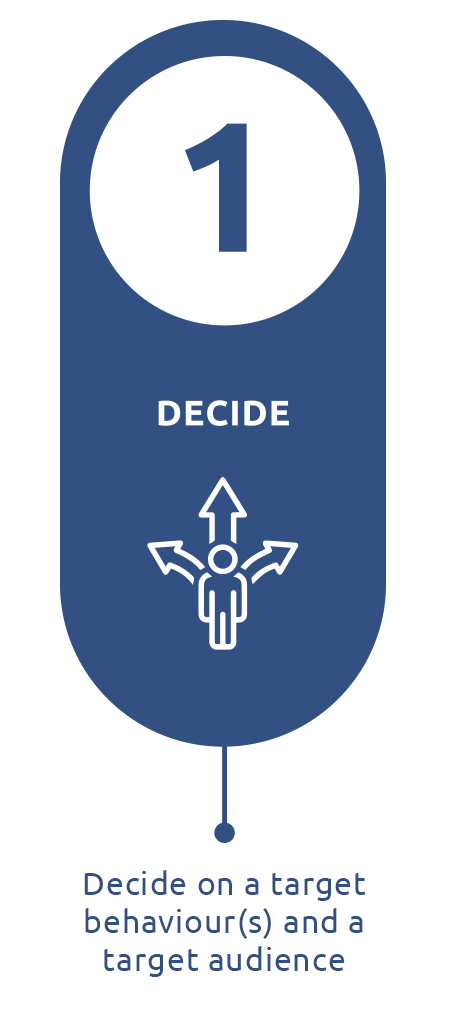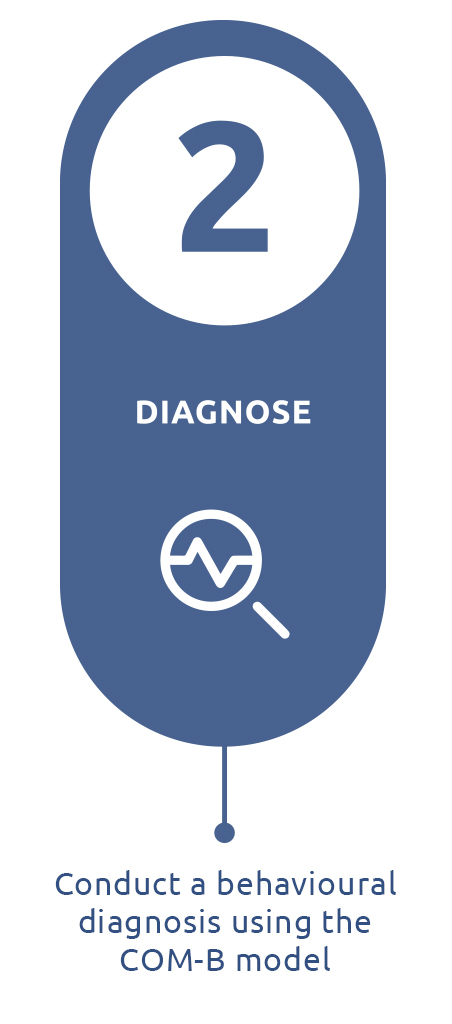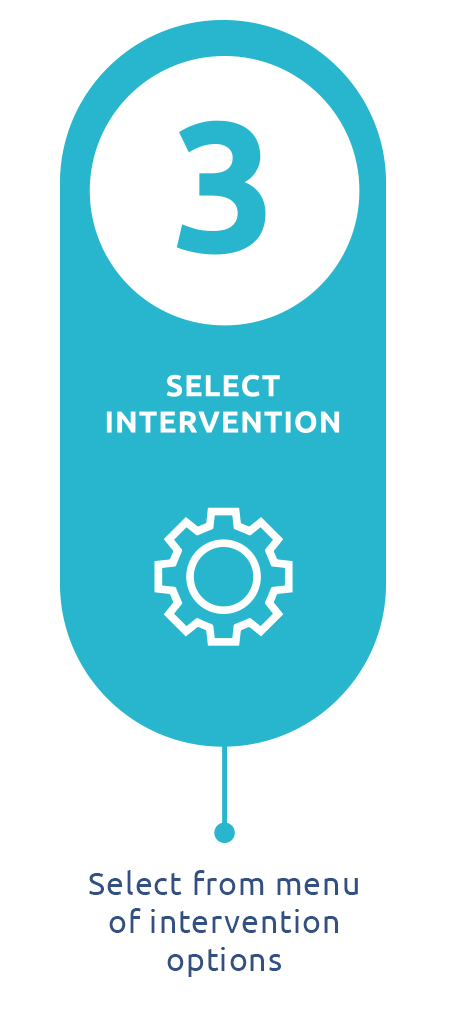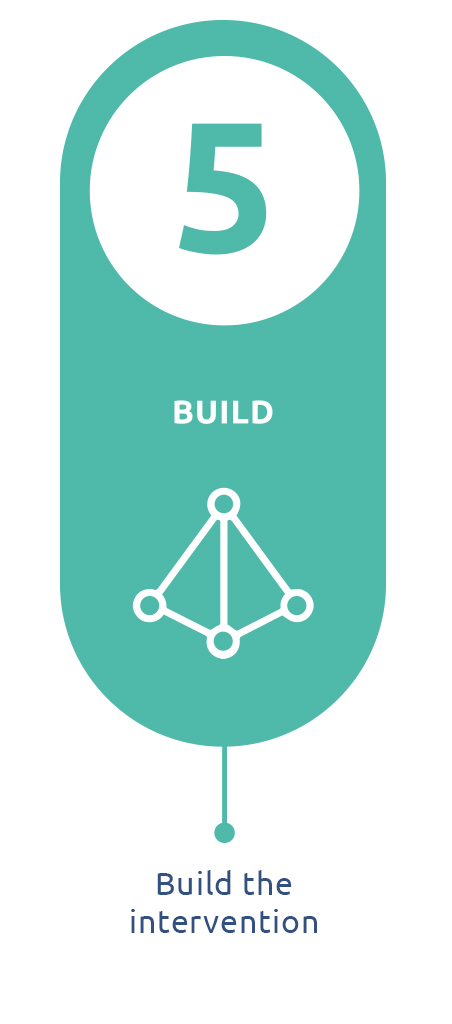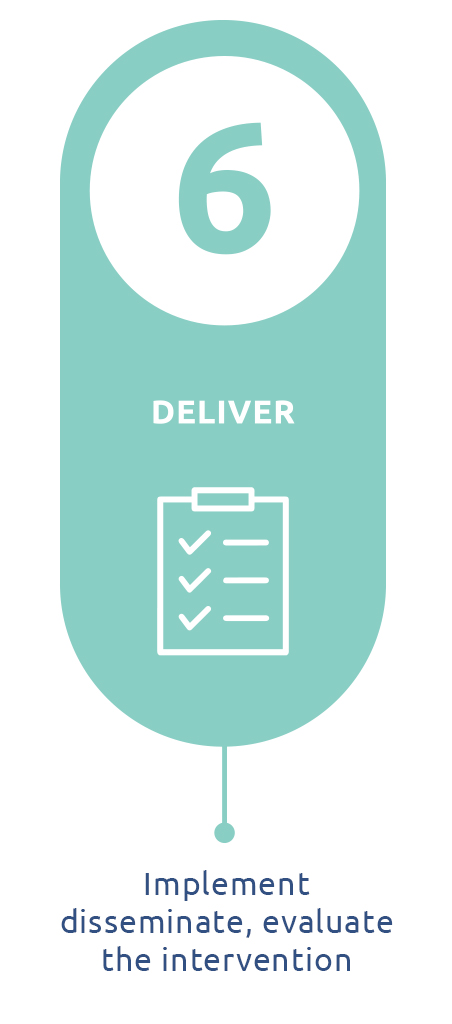Most decisions in policy, service or communications development are made by people who are not behavioural science experts, and they do not need to be. However, behavioural science can add value to the efforts of nearly all practitioners and policy makers – supporting that development is a major goal for the Unit. Developing an understanding of the basic principles of behavioural science and how to enable its application within a project, team, or organisation are key to increasing its use across the system.
Interest in behavioural science is quickly building, there are some great resources, tools, and guidance already out there for you to learn from and apply in your everyday practice. In addition to sharing our own resources, we have collated what we have found useful in the pages below.
We’ve split them up depending on which step in the behavioural science process you’re currently at, more details about the steps can be found here.
Please note that some of the information links included are from external organisations and no Welsh language equivalent is available. We apologise for this.
| Title | Author | Description | Resources |
|---|---|---|---|
| Behaviour Change Technique Taxonomy | UCL Centre for Behaviour Change | Details of 93 behaviour change techniques (BCTs) with labels, definitions and examples. | View webpage |
| Behaviour Change Techniques Taxonomy Training | UCL Centre for Behaviour Change | Training on the behaviour change technique taxonomy | View webpage |
| Developing Behaviourally Informed Communications (Behavioural Science Unit) | Behavioural Science Unit | An interactive tool to help you take a behaviourally informed approach when designing your communications | View resource |
| EAST Framework | Behavioural Insights Team | Information on how to make behaviour change easy, attractive, social and timely (EAST). | View webpage |
| Identifying and Applying Behaviour Change Techniques | Behavioural Science Unit | A practical, interactive tool that introduces Behaviour Change Techniques, considered to be the ‘active ingredients’ of behaviour change interventions. The tool walks you through how to identify and deliver Behaviour Change Techniques, drawing on the COM-B model and Behaviour Change Wheel. | View resource |
| Improving health and wellbeing: A guide to using behavioural science in policy and practice (Behavioural Science Unit) | Behavioural Science Unit | A guide for practitioners and policy makers explaining how behavioural science can be used and applied in practice | View resource |
| MINDSPACE | The Behavioural Insights Team | This document sets out nine robust influences on behaviour, captured in a mnemonic – MINDSPACE – which can be used as a quick checklist when making policy. | View webpage |
| Motivational Interviewing Tools and Resources | Psychology Tools | Tools focused on motivational interviewing principles, four processes in motivational interviewing, and core skills in motivational interviewing | View webpage |
| Re-imaging Help Guide | Nesta, Macmillan Cancer Support, British Heart Foundation, UCL Centre for Behaviour Change | An evidenced-based approach to helping people reach their goals - health and wellbeing interactions informed by behaviour change research | View resource |
| Responding to the Climate Crisis: Applying Behavioural Science (Behavioural Science Unit) | Behavioural Science Unit | A guide designed to support policy makers and professionals use behaviour science to create effective interventions to respond to the climate crisis | View resource |
| The 7 GRAPHIC Principles of Public Health Infographic Design | Dr Catherine Stones & Dr Mike Gent | A guideline for any organisation or designer who needs to design or commission public health infographics for the general public | View resource |
| The Behaviour Change Wheel | Susan Michie, Lou Atkins, Robert West | A guide to designing behaviour change interventions and policies, synthesising 19 behaviour change frameworks. | View webpage |
| The Principles of Behaviour Change Communications | Cabinet Office | This guide explains how government communicators can use a behavioural approach to design and implement effective communications campaigns | View webpage |
| Theory and Techniques Tool | UCL Centre for Behaviour Change | An interactive resource to understand the links between behaviour change techniques (BCTs) and their mechanisms of action (MoAs). | View webpage |
| WISER: A Framework for Improving Government Forms | Behavioural Economics Team, Australian Government | Factors to consider when putting together organisational forms | View resource |

